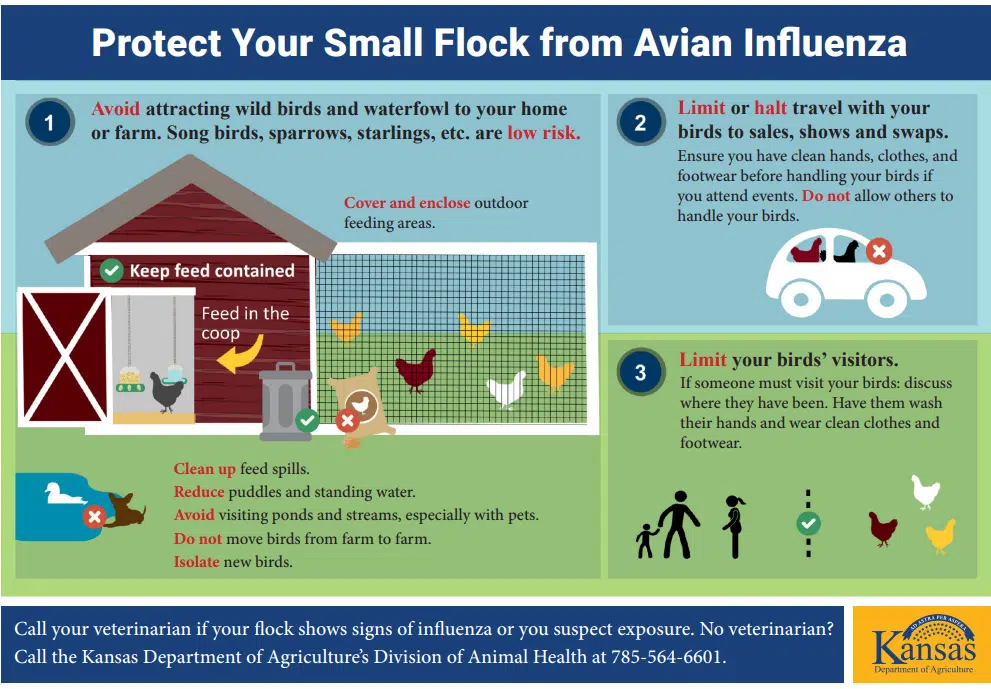After the first case of avian influenza was confirmed just days ago in Kansas, local wildlife experts are doing all they can to limit the possible spread of the deadly disease.
A case of the “bird-flu” was confirmed in Franklin County Saturday within a “non-commercial backyard mixed-species flock (poultry).” According to Shane Hesting of the Kansas Wildlife and Parks Disease Biology Department, avian influenza is extremely dangerous to all species of birds and is often most potent with “domestic poultry.”
Hesting says poultry owners can, and should, take a series of steps to help prevent any potential spread of the virus including:
*Prevent contact with wild birds, especially waterfowl
*Restrict unauthorized access by people and vehicles
*Cover and enclose outdoor feeding areas
*Cover stored feed
*Clean and disnfect vehicle tires or equipment that has been at other farms or locations with poultry or wild birds
*Wear clean clothing, including boots and shoes, when in contact with your flock
*Isolate new birds.
Hesting also says while bird flu is not as dangerous to humans, residents should still avoid any contact with wild birds that are showing symptoms of the virus including coughing, sneezing, nasal discharge, decreased water consumption, decreased egg production, misshapen eggs, lack of coordination and diarrhea. If you come across wild birds showing any of these symptoms do not move the animal, instead, call your veterinarian or the Kansas Department of Animal Health at 785-564-6601.
With the presence of bird flu now in Kansas, David Traylor Zoo Director Lisa Keith says the zoo has taken steps to protect its large population of avian animals.
If you have questions or would like more information visit www.agriculture.ks.gov/avianinfluenza.






















